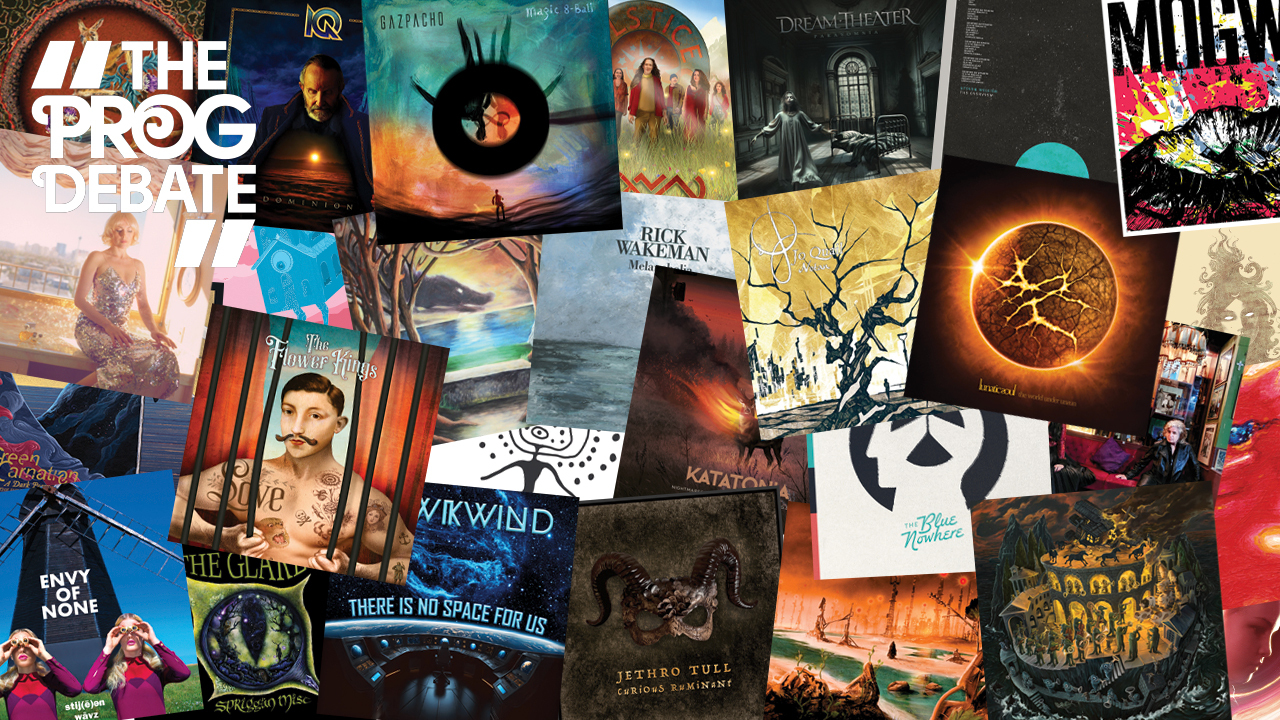“It seemed like prog had run its course… he kickstarted the second wave”: Pendragon’s Nick Barrett wants Marillion co-founder Mick Pointer to get credit for his influence
Neo-prog drummer created the Marquee scene in the 80s and inspired the third generation – including Steven Wilson and Dream Theater – in the 90s, says guitarist

In the 100th edition of Prog, published in 2019, we asked a wide range of prominent genre artists to talk about their influences. Pendragon guitarist-vocalist Nick Barrett chose Mick Pointer, who co-founded Marillion and appeared on their Market Square Heroes EP and Script For A Jester’s Tear. After being fired in 1983 he went on to form Arena with Barrett’s colleague Clive Nolan – but Barrett argued Pointer’s achievements went far beyond neo-prog.
“Some high-profile musicians are regarded as geniuses and hugely influential – but there are also those who almost go under the radar and never get much attention. For me, Mick Pointer is one of these. He’s been more responsible than people know in making a dent on the scene.
Mick started Marillion at a time when it seemed like prog had run its course. The big bands from the 70s seemed to have come to the end of their life cycle, and there was nothing coming through to fly the flag for progressive music.
In 1982, Pendragon’s manager put on a gig with Marillion headlining and ourselves as support. I remember Mick coming into our dressing room and asking if we’d like to support Marillion at the prestigious Marquee Club in London. We jumped at the offer, but didn’t expect to hear anything more. Two weeks later Marillion’s manager John Arnison called.
I can’t emphasise enough what it meant for us to get into the Marquee. On the back of it, other bands like IQ, Twelfth Night and Solstice got dates there as well. It kickstarted what became the second wave of prog – and it was all down to Mick. We needed someone to light the blue touch-paper and set things in motion.
Steven Wilson and Dream Theater cite Marillion as an inspiration. Without Mick, this whole area of music might have died
He was always so enthusiastic about the music, and that rubbed off on the rest of us. He also encouraged bands like Pendragon at every opportunity.
Let’s not forget that the likes of Steven Wilson and Dream Theater became important to the subsequent third wave of prog, and they cite Marillion as an inspiration. Again, Mick should be given credit; without him, this whole area of music might well have died at the end of the 70s.
Sign up below to get the latest from Prog, plus exclusive special offers, direct to your inbox!
Mick is also someone who works very hard. He is, of course, the man who founded Arena with Clive Nolan, and they’re one of the few bands out there who still do 35-date tours. In this day and age, when so many others settle for doing very few shows, they go everywhere.
It typifies Mick’s dedication and underlines that he still cares about the music. For him it’s not about making money, but loving what he does.”
Malcolm Dome had an illustrious and celebrated career which stretched back to working for Record Mirror magazine in the late 70s and Metal Fury in the early 80s before joining Kerrang! at its launch in 1981. His first book, Encyclopedia Metallica, published in 1981, may have been the inspiration for the name of a certain band formed that same year. Dome is also credited with inventing the term "thrash metal" while writing about the Anthrax song Metal Thrashing Mad in 1984. With the launch of Classic Rock magazine in 1998 he became involved with that title, sister magazine Metal Hammer, and was a contributor to Prog magazine since its inception in 2009. He died in 2021.


